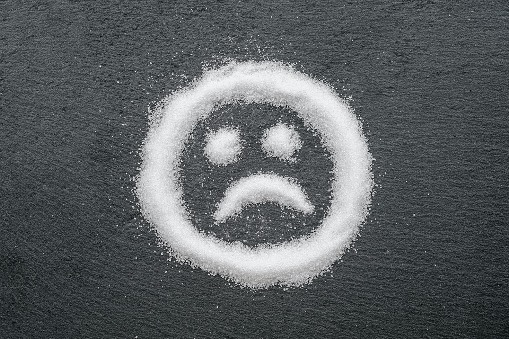LOSS OF LIBIDO - AN OVERVIEW
Loss of libido is a complex issue that can have physical, psychological, and interpersonal factors. Addressing the underlying causes and seeking appropriate treatment can help individuals regain sexual satisfaction and enhance overall well-being. Open communication with healthcare providers and partners is key to managing and overcoming loss of libido effectively.
Loss of libido, also known as reduced sex drive or hypoactive sexual desire disorder (HSDD), is a common sexual health issue characterized by a decreased interest or desire for sexual activity. It can affect both men and women and may occur temporarily or persistently, impacting sexual intimacy and overall quality of life.
SYMPTOMS OF LOSS OF LIBIDO
Symptoms of loss of libido, also known as reduced sex drive or hypoactive sexual desire disorder (HSDD), can vary depending on the underlying cause and individual factors. Here are common symptoms associated with a decrease in libido:
Reduced Interest in Sexual Activity: One of the primary symptoms of loss of libido is a noticeable decrease in interest or desire for sexual activity. Individuals may find themselves less interested in initiating or participating in sexual encounters.
Lack of Sexual Thoughts or Fantasies: Another symptom is a decrease in sexual thoughts, fantasies, or arousal triggers. Individuals with reduced libido may experience fewer sexual fantasies or find it challenging to become sexually aroused.
Difficulty Becoming Aroused: Loss of libido can manifest as difficulty becoming physically aroused during sexual stimulation. This may include a reduced genital response or limited physiological signs of arousal, such as decreased vaginal lubrication in women or erectile dysfunction in men.
Avoidance of Sexual Intimacy: Individuals experiencing loss of libido may actively avoid sexual intimacy with their partner. This avoidance can stem from feelings of disinterest, anxiety, or discomfort related to sexual activity.
Emotional Impact: Loss of libido can lead to emotional distress, frustration, or feelings of inadequacy in both individuals and their partners. It may affect self-esteem and intimate relationships, leading to communication barriers or conflict.
Dissatisfaction with Sexual Experiences: Reduced libido can result in dissatisfaction with sexual experiences, including decreased pleasure or fulfillment during sexual encounters. This dissatisfaction may further contribute to avoidance of intimacy.
Impact on Relationships: Loss of libido can strain relationships and lead to tension or conflict between partners. Differences in sexual desire levels may create challenges in intimacy and communication within the relationship.
Fatigue or Lack of Energy: Chronic fatigue, stress, or underlying health conditions associated with loss of libido can contribute to a general lack of energy or motivation for sexual activity.
It’s essential to note that occasional fluctuations in libido are normal and can be influenced by various factors such as stress, fatigue, or relationship dynamics. However, persistent or significant changes in sexual desire that interfere with overall well-being and relationship satisfaction may warrant evaluation by a healthcare provider.
If you or your partner are experiencing persistent symptoms of loss of libido, consider seeking guidance from our doctors who specialize in sexual health and counseling. They can help identify potential underlying causes, provide appropriate treatment options, and offer support for improving sexual well-being and relationship dynamics.
CAUSES OF LOSS OF LIBIDO
Causes of loss of libido, or reduced sex drive, can be multifaceted and influenced by various physical, psychological, and lifestyle factors. Here are common causes associated with a decrease in libido:
Hormonal Imbalances: Fluctuations or imbalances in hormone levels, such as low testosterone in men or hormonal changes during menopause in women, can contribute to decreased libido.
Medical Conditions: Certain medical conditions, including diabetes, cardiovascular disease, chronic pain, neurological disorders, and thyroid dysfunction, can impact sexual desire and arousal.
Medications: Some medications, such as antidepressants (e.g., SSRIs), antihypertensives, and medications that affect hormone levels, can have side effects that reduce libido.
Psychological Factors: Stress, anxiety, depression, and other mental health issues can negatively affect sexual desire and intimacy.
Relationship Issues: Conflict, communication problems, or unresolved issues within a relationship can lead to decreased sexual interest.
Lifestyle Factors: Unhealthy lifestyle choices, including excessive alcohol consumption, smoking, drug use, poor diet, lack of exercise, and inadequate sleep, can contribute to loss of libido.
Age-related Changes: Aging can lead to natural changes in hormone levels and physical health, which may affect sexual desire.
Fatigue and Stress: Chronic stress, fatigue, and overwork can diminish energy levels and reduce interest in sexual activity.
Body Image and Self-esteem: Negative body image or low self-esteem can impact sexual confidence and desire.
History of Trauma or Abuse: Past experiences of sexual trauma or abuse can lead to psychological barriers and affect sexual desire.
Environmental Factors: Exposure to environmental toxins, pollutants, or chemicals may interfere with hormonal balance and reproductive function.
Sleep Disorders: Conditions such as sleep apnea or insomnia can disrupt hormone regulation and impact libido.
It’s important to consider that individual experiences of loss of libido can vary, and multiple factors may contribute to decreased sexual desire. Addressing underlying causes, such as treating medical conditions, improving lifestyle habits, and addressing psychological factors through therapy or counseling, can help restore libido and improve overall sexual well-being. If loss of libido is causing distress or affecting quality of life, consult with a healthcare provider or sexual health specialist for personalized evaluation and management.
PREVENTION OF LOSS OF LIBIDO
Preventing loss of libido, or reduced sex drive, involves adopting healthy lifestyle habits and addressing potential underlying factors that can impact sexual desire. Here are preventive measures to help maintain sexual vitality and libido:
Maintain a Healthy Lifestyle: Eat a balanced diet rich in fruits, vegetables, whole grains, and lean proteins. Avoid excessive consumption of processed foods, sugar, and unhealthy fats. Regular exercise can also improve overall well-being and promote sexual health.
Manage Stress: Practice stress-reducing techniques such as meditation, deep breathing, yoga, or mindfulness to alleviate stress and anxiety, which can negatively affect libido.
Communicate Openly: Foster open communication with your partner to address relationship issues, emotional concerns, and sexual preferences. Building trust and intimacy in the relationship can enhance sexual desire.
Address Medical Conditions: Manage chronic health conditions such as diabetes, cardiovascular disease, or hormonal imbalances under the guidance of a healthcare professional. Treating underlying medical issues can help prevent loss of libido.
Avoid Substance Abuse: Limit alcohol consumption and avoid recreational drugs that can impair sexual function and libido.
Get Quality Sleep: Prioritize adequate sleep to support hormonal balance and overall well-being. Address sleep disorders such as insomnia or sleep apnea that can disrupt hormone levels and affect libido.
Maintain Hormonal Balance: For individuals experiencing hormonal imbalances, consult with a healthcare provider to explore appropriate treatments or hormone replacement therapies.
Seek Emotional Support: Address psychological factors such as anxiety, depression, or unresolved trauma through therapy or counseling. Emotional well-being is crucial for maintaining healthy sexual desire.
Prioritize Self-care: Take time for self-care activities that promote relaxation and self-esteem. Engage in hobbies, spend time with loved ones, and practice self-love to enhance overall happiness and sexual vitality.
Stay Connected: Maintain a fulfilling social life and engage in activities that bring joy and fulfillment. Strong social connections and a positive outlook on life can contribute to a healthy libido.
Educate Yourself: Stay informed about sexual health and seek professional guidance if you have concerns about changes in libido or sexual function.
By adopting these preventive measures and addressing potential contributing factors, individuals can support sexual well-being and reduce the risk of experiencing loss of libido. If you notice persistent changes in libido or sexual function, consult with a healthcare provider for personalized evaluation and guidance. Early intervention and proactive lifestyle changes can help maintain a fulfilling and satisfying sex life.
LOSS OF LIBIDO DIAGNOSIS
Diagnosing loss of libido, or reduced sex drive, involves a comprehensive evaluation by a healthcare provider to identify potential underlying causes. Here are steps typically involved in the diagnosis of loss of libido:
Medical History Review: The healthcare provider will conduct a detailed medical history to understand your overall health, current medications, and any existing health conditions that may contribute to changes in libido.
Physical Examination: A physical examination may be performed to assess overall health, including evaluating signs of hormonal imbalances, neurological issues, or physical conditions that could affect sexual function.
Psychological Assessment: Your healthcare provider may inquire about your emotional well-being, stress levels, relationship dynamics, and past experiences that could impact sexual desire.
Laboratory Tests: Blood tests may be ordered to measure hormone levels, including testosterone, thyroid hormones, and prolactin. Abnormalities in hormone levels can indicate hormonal imbalances that contribute to loss of libido.
Semen Analysis (for Men): In cases of male infertility or reduced libido, a semen analysis may be conducted to assess sperm count, motility, and morphology.
Imaging Studies: In certain situations, imaging studies such as ultrasound may be recommended to evaluate the reproductive organs and identify any structural abnormalities.
Psychological Evaluation: If psychological factors are suspected to contribute to loss of libido, a referral to a mental health professional or sex therapist may be recommended for further assessment and counseling.
Review of Medications: Your healthcare provider will review current medications to identify potential side effects that could affect sexual desire or function.
Discussion of Lifestyle Factors: Lifestyle habits such as diet, exercise, sleep patterns, substance use, and stress levels will be discussed to identify potential contributors to loss of libido.
The diagnosis of loss of libido requires a comprehensive and individualized approach to identify underlying factors specific to each individual. Treatment recommendations will be based on the findings of the evaluation and may involve addressing hormonal imbalances, managing underlying health conditions, addressing psychological factors, adjusting medications, or making lifestyle modifications.
If you are experiencing persistent changes in libido or sexual function, it’s important to seek evaluation and guidance from a healthcare provider specializing in sexual health. Early intervention and appropriate treatment can help restore sexual desire and improve overall quality of life.
ALLOPATHY APPROACH TOWARDS LOSS OF LIBIDO TREATMENT
In allopathic medicine, the approach towards treating loss of libido (reduced sex drive) involves addressing underlying causes and implementing targeted therapies. Here is an overview of the allopathic approach towards treating loss of libido:
Identifying Underlying Causes: Allopathic healthcare providers start by identifying potential medical or psychological factors contributing to loss of libido through comprehensive evaluation, including medical history, physical examination, and laboratory tests (e.g., hormone levels, thyroid function).
Addressing Medical Conditions: Treatment may involve managing underlying medical conditions that can impact libido, such as hormonal imbalances (e.g., testosterone deficiency in men, menopause-related hormonal changes in women), diabetes, cardiovascular disease, or neurological disorders.
Medication Adjustment: If loss of libido is attributed to side effects of medications (e.g., antidepressants, antihypertensives), healthcare providers may consider adjusting or switching medications to minimize adverse effects on sexual function.
Hormone Replacement Therapy: In cases of hormonal imbalances affecting libido, hormone replacement therapy (e.g., testosterone therapy for men, estrogen therapy for women) may be prescribed to restore hormonal levels and improve sexual desire.
Psychological Counseling: Allopathic practitioners may refer individuals experiencing psychological factors contributing to loss of libido (e.g., stress, anxiety, depression, relationship issues) to mental health professionals for counseling or therapy.
Lifestyle Modifications: Allopathic treatment often emphasizes lifestyle modifications to support sexual health, including maintaining a healthy diet, regular exercise, stress management techniques, adequate sleep, and avoiding substance abuse.
Sex Therapy: Allopathic healthcare providers may recommend sex therapy or counseling to address relationship dynamics, communication barriers, or psychological factors affecting sexual desire and intimacy.
Collaborative Care: In some cases, allopathic practitioners may collaborate with other healthcare specialists, such as endocrinologists, urologists, gynecologists, or psychologists, to provide comprehensive care tailored to individual needs.
Follow-up and Monitoring: Allopathic treatment plans for loss of libido often involve regular follow-up visits to assess treatment efficacy, monitor hormone levels, and adjust therapies as needed based on individual response and progress.
It’s important for individuals experiencing loss of libido to seek evaluation and guidance from qualified allopathic healthcare providers specializing in sexual health. A personalized treatment plan can be developed based on the underlying causes and individual needs, aiming to restore sexual desire and improve overall quality of life.
AYURVEDA APPROACH TOWARDS LOSS OF LIBIDO TREATMENT
In Ayurveda, the approach towards treating loss of libido (reduced sexual desire) involves addressing the underlying imbalances in the body’s doshas (energetic forces) and promoting overall vitality and well-being. Here is an overview of the Ayurvedic approach towards treating loss of libido:
Assessment of Dosha Imbalance: Ayurvedic practitioners begin by assessing the individual’s constitution (prakriti) and identifying any imbalance in the doshas, particularly Vata (air and space), Pitta (fire and water), and Kapha (earth and water). Loss of libido is often associated with imbalances in these doshas.
Lifestyle Recommendations: Ayurveda emphasizes lifestyle modifications to restore balance and promote sexual health. This includes adopting a regular daily routine (dinacharya), consuming nourishing and balanced meals suitable for one’s dosha type, engaging in regular exercise, and practicing stress-reducing techniques such as yoga and meditation.
Herbal Remedies: Ayurvedic herbs are used to support sexual vitality and address specific imbalances. Common herbs for enhancing libido and sexual function include ashwagandha, shatavari, safed musli, gokshura, vidari kand, and kapikacchu. These herbs are often prescribed in formulations tailored to the individual’s dosha constitution.
Detoxification (Panchakarma): Panchakarma therapies, such as basti (medicated enema), virechana (therapeutic purgation), and shirodhara (oil pouring on the forehead), may be recommended to detoxify the body, balance the doshas, and rejuvenate the reproductive system.
Yoga and Pranayama: Specific yoga asanas (postures) and pranayama (breathing exercises) can help improve blood circulation, enhance vitality, and balance the body’s energy channels (nadis) related to sexual health.
Ayurvedic Massage (Abhyanga): Regular Ayurvedic massage with herbal oils can stimulate circulation, reduce stress, and promote overall relaxation, which can contribute to improved sexual vitality.
Dietary Recommendations: Ayurveda emphasizes the consumption of foods that are nourishing, easily digestible, and tailored to one’s dosha type. Specific dietary recommendations may include incorporating aphrodisiac foods such as almonds, dates, saffron, and ghee.
Stress Management: Ayurvedic therapies focus on reducing stress and promoting mental well-being, as stress is a common factor contributing to loss of libido. Meditation, mindfulness practices, and self-care routines are encouraged.
Holistic Approach: Ayurveda takes a holistic approach to treating loss of libido, considering the interconnectedness of the mind, body, and spirit. Treatment plans are personalized based on individual constitution, dosha imbalances, and specific symptoms.
It’s important to consult with a qualified Ayurvedic practitioner for personalized diagnosis and treatment of loss of libido. Ayurvedic therapies aim to restore overall balance and vitality, promoting sexual health and well-being through natural and holistic approaches.
ROLE OF PANCHKARMA IN LOSS OF LIBIDO TREATMENT
The role of Panchakarma in the treatment of loss of libido (reduced sexual desire) within Ayurveda involves detoxification, rejuvenation, and balancing of the body’s doshas (energetic forces) to restore overall vitality and sexual health. Panchakarma therapies are a key component of Ayurvedic treatment for addressing underlying imbalances that contribute to loss of libido. Here’s how Panchakarma plays a role in treating this condition:
Detoxification (Shodhana): Panchakarma therapies like Vamana (therapeutic vomiting), Virechana (therapeutic purgation), and Basti (medicated enema) are used to eliminate accumulated toxins (ama) from the body. Detoxification helps to clear blockages in the body’s channels (srotas) and improve circulation, which is essential for maintaining healthy reproductive function.
Rejuvenation (Rasayana): Following detoxification, Rasayana therapies are administered to nourish and rejuvenate the tissues, including those related to reproductive health. Rasayana herbs and treatments help strengthen the body, enhance vitality, and promote overall well-being, including sexual vigor.
Balancing Doshas: Panchakarma therapies aim to balance the doshas (Vata, Pitta, Kapha) that may be imbalanced and contributing to loss of libido. By restoring doshic balance through Panchakarma, Ayurvedic practitioners address the root cause of the condition.
Stress Reduction: Panchakarma treatments promote relaxation and stress reduction, which is important for improving sexual desire and intimacy. Stress can negatively impact libido, and Panchakarma therapies help to calm the mind and nervous system.
Specific Therapies for Reproductive Health: Some Panchakarma therapies specifically target the reproductive organs and channels, enhancing their function and promoting healthy sexual response.
Holistic Approach: Panchakarma is part of a holistic approach to wellness in Ayurveda. By addressing physical, mental, and emotional aspects of health, Panchakarma supports overall well-being, including sexual health.
Examples of specific Panchakarma therapies that may benefit loss of libido include:
Basti (Medicated Enema): Basti treatments using herbal oils or decoctions are used to nourish and strengthen the reproductive system, balancing Vata dosha and promoting healthy sexual function.
Shirodhara (Oil Pouring on Forehead): Shirodhara is a deeply relaxing therapy that calms the nervous system and balances Pitta dosha, reducing stress and promoting emotional well-being.
Abhyanga (Ayurvedic Massage): Regular massage with herbal oils improves circulation, reduces tension, and supports overall vitality, benefiting sexual health.
Overall, Panchakarma plays a vital role in the Ayurvedic treatment of loss of libido by addressing imbalances at the root level and promoting holistic well-being. It is important to consult with a qualified Ayurvedic practitioner to determine the most appropriate Panchakarma therapies based on individual needs and doshic imbalances.
LOSS OF LIBIDO TREATMENT AT DR MONGA MEDI CLINIC
As experts in Ayurvedic treatment at Dr. Monga’s, we offer a comprehensive approach to addressing loss of libido, also known as male sexual dysfunction. Our treatment protocol combines traditional Ayurvedic therapies with modern medical insights to restore and enhance libido naturally. Here’s an overview of our approach:
Diagnostic Evaluation: Our experienced practitioners conduct a thorough assessment to identify the underlying causes of loss of libido, such as hormonal imbalances, stress, lifestyle factors, or underlying health conditions.
Ayurvedic Medications: We prescribe customized herbal formulations known to improve vitality, boost sexual desire, and enhance reproductive health. These include herbs like Ashwagandha, Shilajit, Safed Musli, and Gokshura, carefully selected to address specific imbalances.
Panchakarma Therapies: Our treatments may include detoxification therapies (Panchakarma) to cleanse the body of toxins and restore balance to the doshas (energies) affecting sexual function.
Dietary and Lifestyle Recommendations: We provide personalized dietary advice and lifestyle modifications to support reproductive health, including nutrition tips and stress-reducing practices like yoga and meditation.
Stress Management Techniques: Stress is a common contributor to loss of libido. We offer techniques to manage stress effectively, promoting relaxation and emotional well-being.
Follow-Up Care: Our approach emphasizes ongoing support and monitoring to track progress, adjust treatments as needed, and optimize outcomes.
At Dr. Monga’s, our goal is to empower individuals with safe, effective, and holistic solutions for loss of libido. We combine the ancient wisdom of Ayurveda with modern medical knowledge to help restore sexual vitality and overall well-being naturally. Contact us today to schedule a consultation and begin your journey towards renewed sexual health and vitality.
FREQUENTLY ASKED QUESTIONS
Stress can significantly impact libido by increasing cortisol levels and affecting hormone production. Chronic stress can lead to fatigue, anxiety, and reduced sexual desire.
Yes, certain medications, such as antidepressants (particularly selective serotonin reuptake inhibitors or SSRIs), antihypertensives, and medications that lower testosterone levels, can contribute to loss of libido as a side effect.
Testosterone is a key hormone that plays a crucial role in male sexual function and libido. Low testosterone levels can contribute to decreased sexual desire and other sexual health issues.
Some herbal supplements, such as Ashwagandha, Ginseng, and Tribulus terrestris, are believed to have aphrodisiac properties and may help improve libido. Ayurvedic treatments that focus on balancing doshas and improving overall vitality can also be beneficial.
It’s advisable to seek medical help if the loss of libido persists for an extended period, causes distress or relationship issues, or is accompanied by other symptoms like erectile dysfunction, fatigue, or mood changes.
INFORMATIVE ARTICLES ON MEN'S PROBLEMS

ERECTILE DYSFUNCTION
Erectile Dysfunction: Symptoms, Causes, Diagnosis, Treatment and Myths Are you worried about erectile dysfunction (ED)? You’re not alone, and there’s no need to feel embarrassed.

PREMATURE EJACULATION
Premature Ejaculation: Symptoms, Causes, Diagnosis, Treatment and Myths Imagine you’re playing your favorite video game, and just when you’re about to win, the game ends

Male Infertility
MALE INFERTILITY – AN OVERVIEW Male infertility is a significant reproductive health issue characterized by the inability of a man to achieve pregnancy in a











